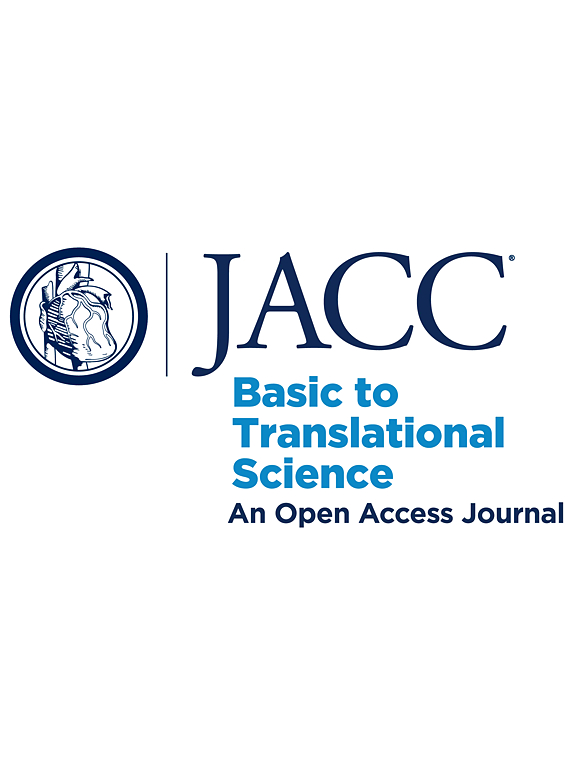EPA Induces an Anti-Inflammatory Transcriptome in T Cells, Implicating a Triglyceride-Independent Pathway in Cardiovascular Risk Reduction
IF 8.4
1区 医学
Q1 CARDIAC & CARDIOVASCULAR SYSTEMS
引用次数: 0
Abstract
Twice-daily intake of purified eicosapentaenoic acid (EPA) reduces atherosclerotic cardiovascular disease risk in patients with high triglycerides, but its exact mechanism remains unclear. We exposed non-activated CD4+ T cells to 100μM EPA, oleic acid, palmitic acid, or control, and conducted RNA and ATAC-sequencing after 48 hours. EPA exposure downregulated immune response-related genes like HLA-DRA, CD69, and IL2RA, and upregulated oxidative stress prevention genes like NQO1. Transcription factor footprinting showed decreased GATA3 and PU.1, and increased REV-ERB. These effects were specific to EPA, suggesting it induces an anti-inflammatory transcriptomic landscape in CD4+ T cells, contributing to its observed cardiovascular benefits.
求助全文
约1分钟内获得全文
求助全文
来源期刊

JACC: Basic to Translational Science
CARDIAC & CARDIOVASCULAR SYSTEMS-
CiteScore
14.20
自引率
1.00%
发文量
161
审稿时长
16 weeks
期刊介绍:
JACC: Basic to Translational Science is an open access journal that is part of the renowned Journal of the American College of Cardiology (JACC). It focuses on advancing the field of Translational Cardiovascular Medicine and aims to accelerate the translation of new scientific discoveries into therapies that improve outcomes for patients with or at risk for Cardiovascular Disease. The journal covers thematic areas such as pre-clinical research, clinical trials, personalized medicine, novel drugs, devices, and biologics, proteomics, genomics, and metabolomics, as well as early phase clinical trial methodology.
 求助内容:
求助内容: 应助结果提醒方式:
应助结果提醒方式:


